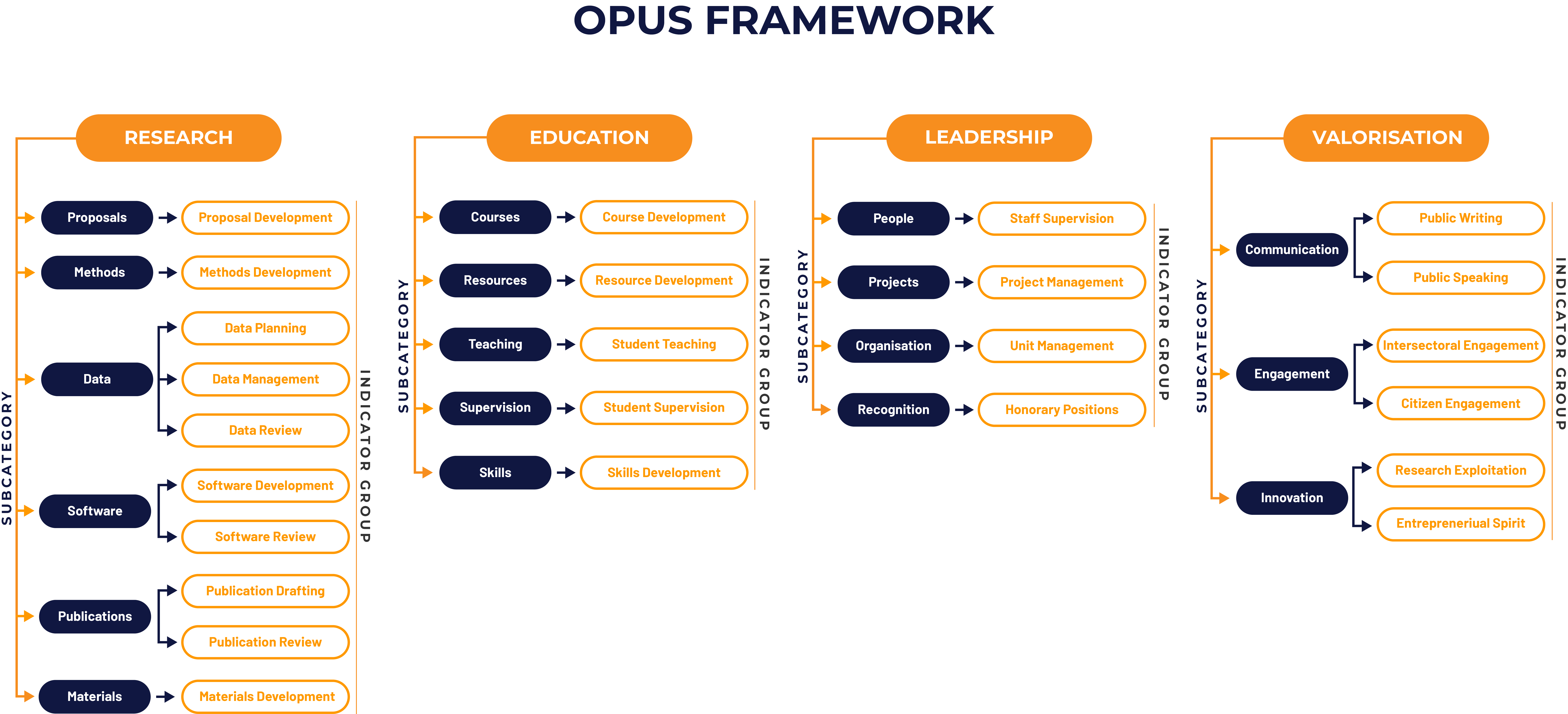
A Journey into Scholarly Recognition
A Journey into Scholarly Recognition https://opusproject.eu/wp-content/uploads/2024/01/OPUS-indicators-diagram.png 1024 467 Open and Universal Science (OPUS) Project Open and Universal Science (OPUS) Project https://opusproject.eu/wp-content/uploads/2024/01/OPUS-indicators-diagram.pngIn the world of academia, where the pursuit of knowledge knows no bounds, a transformative tool has emerged: the Researcher Assessment Framework (RAF). Crafted by the visionary minds at OPUS, this framework represents a significant departure from traditional methods of evaluating researchers, embracing a more comprehensive and nuanced approach to scholarly recognition.
At its core, the RAF embodies the principles of Open Science, championing practices that promote transparency, collaboration, and accessibility. Gone are the days when scholarly success was measured solely by the number of peer-reviewed publications or citation counts. Instead, the RAF invites us on a journey that celebrates the entire spectrum of scholarly activities, from the conception of ideas to their dissemination and impact on society.
Let us embark on an exploration of the RAF, delving into each of its key components to understand their significance in reshaping the landscape of scholarly recognition:
- Research: This category encompasses the core activities of research, including proposal development, methods exploration, data management, software development, publication dissemination, and materials innovation. Within each subcategory, researchers are encouraged to embrace practices that promote transparency, reproducibility, and collaboration. By valuing not just the end results of research but also the processes that lead to them, the RAF fosters a culture of openness and inclusivity within the academic community.
- Education: In this category, researchers are recognized for their contributions to education and mentorship. Whether designing educational courses, creating resources, teaching, supervising students, or developing their own skills, researchers play a pivotal role in shaping the minds of future generations. The RAF acknowledges the importance of these activities in nurturing the next generation of scholars and fostering a culture of lifelong learning.
- Leadership: Effective leadership is essential for driving innovation and fostering collaboration within the academic community. In this category, researchers are acknowledged for their efforts in managing teams, projects, and organizational units. By empowering others to reach their full potential and guiding the trajectory of scholarly endeavors, leaders play a crucial role in shaping the future of research. The RAF celebrates researchers who demonstrate exemplary leadership qualities and inspire others to excel.
- Valorization: The impact of research extends beyond the confines of academia, shaping policies, technologies, and societal norms. In this category, researchers are recognized for their efforts in communicating their findings effectively, engaging with communities, and driving innovation. Whether through public writing, community engagement, or entrepreneurial endeavors, researchers contribute to the translation of knowledge into tangible solutions that address real-world challenges. The RAF celebrates researchers who go above and beyond to ensure that their work makes a meaningful difference in the world.
In essence, the Researcher Assessment Framework represents a paradigm shift in how we recognize and reward scholarly contributions. By embracing a more holistic and inclusive approach to assessment, the RAF lays the foundation for a research culture that values diversity, collaboration, and societal impact.
As we journey through the dynamic world of academia, let’s embrace the RAF’s invitation to shape a brighter, more inclusive future for research together.
- Posted In:
- Open Science News




